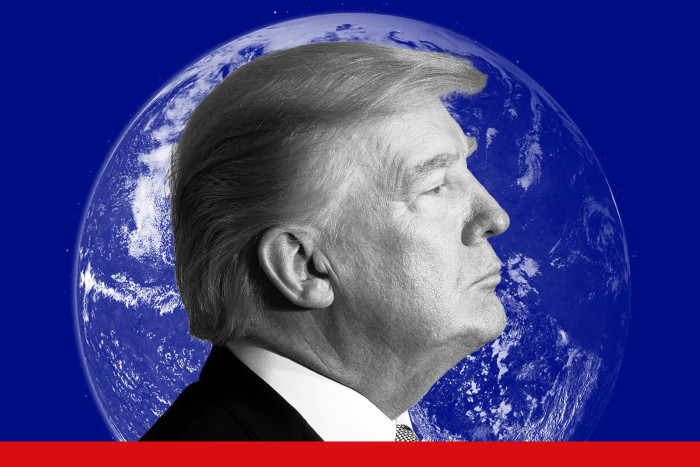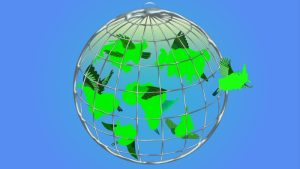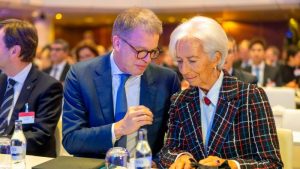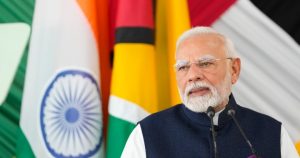Indonesia bans sales of iPhone 16

This article is an on-site version of our FirstFT newsletter. Subscribers can sign up to our Asia, Europe/Africa or Americas edition to receive the newsletter every weekday. Explore all of our newsletters here
In today’s newsletter:
-
Indonesia’s ban on iPhone 16 sales
-
Bangladesh central banker accuses tycoons of ‘robbing banks’ of $17bn
-
Donald Trump’s foreign policy plans
Good morning. Indonesia has banned the sale of the iPhone 16 in the country, citing Apple’s failure to meet government rules for local investment.
Apple’s latest smartphone has not passed the south-east Asian country’s requirements for 40 per cent local content in handsets and tablets, the Ministry of Industry said.
The rule is intended to attract foreign investments and protect Indonesia’s domestic industries. However some have criticised the regulations as protectionist and the local content requirement — which is different across industries and calls for a certain percentage of goods to be sourced locally — has deterred some investors.
The world’s fourth most populous country is potentially a huge market for Apple products. The number of active mobile phones in Indonesia totals 354mn — exceeding the population of about 280mn, the industry ministry said.
The ban on sales comes just days into the presidency of Prabowo Subianto, who has promised investment-friendly policies. Our reporters in Jakarta have the full story.
Here’s what else I’m keeping tabs on today:
-
Economic data: Japan and Singapore publish their latest unemployment figures.
-
Summit: Finnish President Alexander Stubb meets China’s leader Xi Jinping in Beijing.
-
Results: HSBC, Japan Exchange Group, PetroChina and China Merchants Bank report.
Five more top stories
1. Bangladesh’s new central bank chief has accused tycoons linked to the toppled regime of Sheikh Hasina of working with members of the country’s powerful military intelligence agency to siphon $17bn out of the banking sector during her rule. “This is the biggest, highest robbing of banks by any international standards,” Bangladesh Bank governor Ahsan Mansur told the FT.
2. Olympus head Stefan Kaufmann has been pushed out over allegations that he purchased illegal drugs, the Japanese medical device maker said yesterday. Here’s more on the stunning exit of one of Japan’s few foreign chief executives.
3. Oil prices fell sharply yesterday after Israel’s attack on Iran at the weekend avoided oil and nuclear facilities. Brent crude, the international benchmark, settled down just over 6 per cent at $71.42 a barrel after Tehran gave a measured response to the strikes.
4. Donald Trump’s campaign was scrambling yesterday to stem the fallout from a rally at New York’s Madison Square Garden where one speaker called Puerto Rico a “floating island of garbage” and another likened Kamala Harris to a prostitute with “pimp handlers”. The comments overshadowed Trump’s speech at the event, which was billed as the Republican candidate’s “closing argument” with just a week to go until the election.
5. Nato has confirmed North Korea’s troop deployment to the Kursk region in western Russia. Secretary-general Mark Rutte described the development as “a dangerous expansion of Russia’s war” that constituted a threat to both European and Indo-Pacific security.
The Big Read

Donald Trump has a radical global agenda for a second term, according to his allies, advisers and would-be aides — from Ukraine and the Middle East to pressuring the US’s friends and foes. The world has good reason to be jittery about his audacious “America first” agenda. One confidant of the Republican candidate said: “Of course the other side wants predictability. Trump is not predictable and we Americans like it.”
We’re also reading . . .
-
North Korea: There has been a tendency in the west to treat the country as a joke, writes Gideon Rachman. But Kim Jong Un’s intervention in the Ukraine war reflects a dangerous turn in Pyongyang’s approach to the world.
-
HSBC overhaul: Is the bank’s move to split “east” from “west” dramatic or prosaic? The answer may depend on the likes of Xi Jinping and Donald Trump, writes Patrick Jenkins.
-
Chinese business: Beijing is promising to improve conditions for private business in China. But it may come with an unsettling price, writes Angela Zhang.
Chart of the day
Japan’s Prime Minister Shigeru Ishiba has vowed to stay on as the nation’s leader after his Liberal Democratic party was trounced in a general election. The LDP’s performance in Sunday’s poll was the ruling party’s worst in 15 years, far surpassing even the most pessimistic forecasts.
Take a break from the news
Jerry Seinfeld joked that people would rather be in the casket at a funeral than giving the eulogy. Fear of public speaking is very common, writes Tim Harford. But he offers some advice on how to avoid rhetorical relapses and make a memorable and clear presentation.

#Indonesia #bans #sales #iPhone







